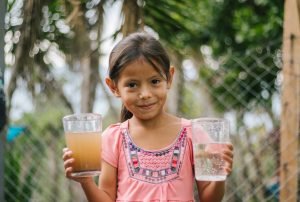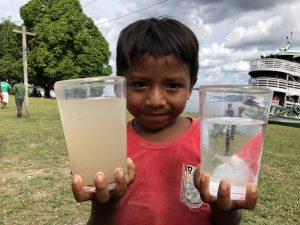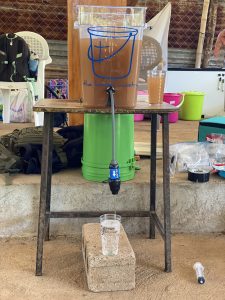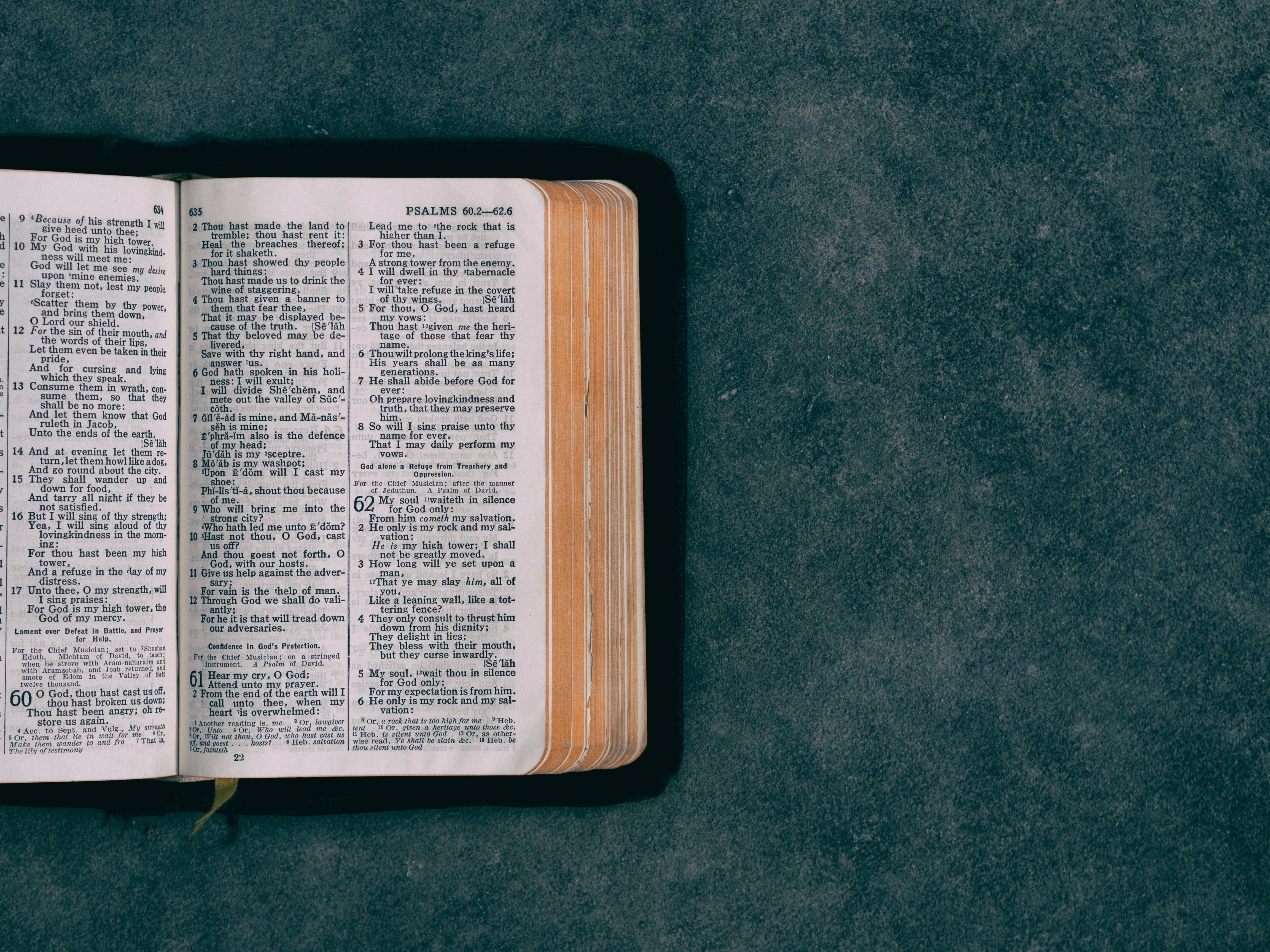The Bucket Ministry’s mission statement is “sharing God’s love through the gift of clean, safe drinking water.” If you are reading this, you have likely heard that before and probably support that mission, but do you fully understand the issue that is being addressed?
For those of us sitting in comfortable homes with seemingly unlimited clean water, it is likely difficult to understand what the world water crisis actually means to those experiencing it. Though many of us are incredibly blessed to likely never have to personally experience the consequences of drinking unclean water, we can work to learn and understand to become more compassionate and aid those experiencing it.
According to ourworldindata.org, unsafe water sources are responsible for 1.2 million deaths per year, based on data collected in 2017. When broken down further, this is 23,077 deaths per week, 3,288 per day, 137 per hour, and 2.28 per minute. These numbers are undeniably shocking. In the time it takes you to read this article, likely 10 or more people have died from unsafe water.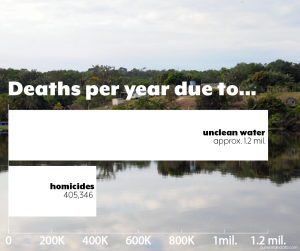
This 1.2 million number is even more shocking when compared with other data points. This number was triple the number of homicides in 2017 and equal to the number who died in road accidents in the same year.
Even more importantly, these deaths is the fact that they are largely preventable. Unclean water is the leading risk factor of infectious diseases like cholera, diarrhea, dysentery, hepatitis A, typhoid and polio. It also affects malnutrition and childhood stunting. If these people are given the resources and access to have and maintain clean water, this statistic would dwindle.
The world water crisis is an important issue and is one of the main areas The Bucket Ministry works to address. As we continue to address this global problem, we encourage you to get involved in whatever way you are able. If you want to learn more about this issue, please reach out to us through our website or email [email protected].
See the differences in filtered and unfiltered water around the world:
all data from: ourworldindata.org

